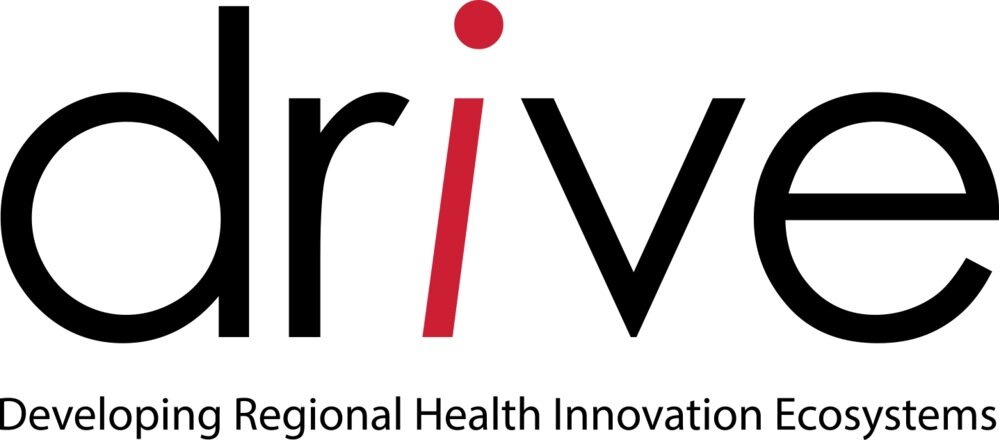The Sensors and Analytics for Monitoring Memory and Mobility hub (SAM3) Agewell National Innovation Hub in Ottawa, a joint initiative between AGE-WELL, Carleton University and Bruyere Research Institute, focuses on creating sensor based smart technologies that monitor older adults’ health and well-being where they live. As people age, mobility and memory may be affected, and in more severe cases, may result in individuals needing assistance to live in their home, or with more severe impairment, to live in institutional care where they may experience reduced independence and quality of life. The higher costs to provide institutional care, and the development of intelligent assistive technologies that improve quality of life and possibly reduce the cost of care are being tested at SAM3.
Dr. Heidi Sveistrup speaking at the Bruyere Research Institute
The (SAM3) Innovation Hub is currently located at the at the Bruyere Research Institute, and brings researchers, healthcare providers, industry stakeholders and older adults together to collaboratively conceive and develop age-related technologies. Research will be conducted onsite at Bruyere and in the new Carleton Advanced Research and Innovation in Smart Environments building. Teams will investigate issues such as cognitive impairment, screening for balance or strength, and decreasing the risk of falls. Projects that are already underway include investigating pressure-sensitive mats that fit under a mattress with a system to alert seniors about vital signs, activity and mobility. Research is also being done on home sensor systems that provide support to carers as well as monitor cognitive abilities, sleep quality and the ability to use everyday objects. Data can be instantly analyzed to detect and report problems before they become serious. The SAM3 research teams focuses on investigating the use of technology that can lower caregiver burden.
Dr. Heidi Sveistrup, co-PI of the DRiVE project, Professor in the Faculty of Health Sciences at the University of Ottawa, and interim CEO and Chief Scientific Officer at Bruyère Research Institute is one of the three founding members of the SAM3 Innovation Hub. Dr. Sveistrup is excited that the SAM3 “represents real opportunities for Canadian companies with sensor products that can be incorporated into sophisticated and complex systems to support quality of life.” She adds: “We are delighted to be working with diverse stakeholders in this initiative. Helping older people in the community live better and maintain their dignity is a priority for Bruyère.”
The SAM3 Innovation Hub is starting up in one of the more mature innovation ecosystems in Canada. The 2017 Global Startup Ecosystem Report highlighted Ottawa’s active culture of entrepreneurship particularly in the software sector. Specialized accelerator programs like LSpark, the activities of Invest Ottawa- a non-profit, focused on supporting economic growth and job creation in the region and now anchoring the newest city hub at Bayview Yards, the proximity to the federal government and many industry and non-profit head offices- makes Ottawa a truly unique ecosystem. The presence of international embassies and foreign delegations, as well as two highly regarded universities, means that Ottawa startups’ Foreign Customer rate, at 41%, is markedly higher than the global average of 23%.
The pressing issues associated with an aging population, and the presence of world-class healthcare institutions in the Ottawa region, has focused many local researchers on developing technologies that improve the processes, efficiency and quality of care in the health system. Ottawa has been known as one of the emerging, albeit smaller, biotech clusters in Canada (Gertler & Vinodrai, 2009) and has also developed some expertise in non-therapeutics, including medical and assistive technologies. This is important for SAM3 - the presence of anchor companies and a vibrant cluster of researchers, and suppliers and local demand for products are crucial indicators of an ecosystem that will be sustained over time. Furthermore, with a focus on physical technologies, the presence of accessible community fabrication facilities, patient investment capital, and access to successful entrepreneurs and mentors: SAM3 is well positioned achieve its goals.
More and more, innovators and builders globally are recognizing the potential from developing medical and consumer products for older populations. Innovation hubs around the world and across Canada are increasingly conducting research in and developing assistive AI devices that help older adults live more independent lives.
The Centre for Aging and Brain Health Innovation, situated in Toronto is a hub that develops innovations to help seniors safely settle into the home of their choice, while maintaining cognitive, emotional, and physical well-being. It focuses on brain health and solutions in the clinical setting. Overseas, Israel’s first Innovation Lab launched in Beersheva is helping to reduce everyday challenges experienced by older adults, by taking a 360 degree view of the issues. They’re not just looking at hardware; social projects are also being explored where teenagers are connected with older adults to address loneliness and depression. There is also a model home that fully simulates senior citizen’s living environment and aids in developing prototypes that can be implemented around the home to aid in better quality of life.
Clearly, Around the world, and in Canada, there is increasing interest in helping older citizens to live more independently. However, innovations do not occur in any systematic way without the resources, mentoring and infrastructure associated with a health regional ecosystem. The SAM3 innovation hub will inject innovation capacity in the Ottawa ecosystem over the long term, and will help drive interest in, and development and testing of, novel age-related technologies

